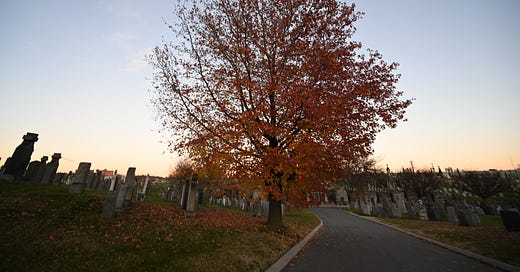Poetry’s weird, because it made out of words, but it can’t actually be put into words. Poets do some kind of strange, metaphysical thing where the words they use transcend themselves. They become something more like music.
This kind of thing is difficult for me. I like to be able to wrap my head around things. So, while I’ve certainly tried, I’ve never really ‘gotten’ poetry.
I have a favorite poem, though. One that actually accomplishes what it’s supposed to accomplish. And it does so while being, as most poems are (to me at least), only partially comprehensible.
It’s called “Eidólons,” by Walt Whitman.
Eidólons
I met a seer,
Passing the hues and objects of the world,
The fields of art and learning, pleasure, sense,
To glean eidólons.
Put in thy chants said he,
No more the puzzling hour nor day, nor segments, parts, put in,
Put first before the rest as light for all and entrance-song of all,
That of eidólons.
Ever the dim beginning,
Ever the growth, the rounding of the circle,
Ever the summit and the merge at last, (to surely start again,)
Eidólons! eidólons!
Ever the mutable,
Ever materials, changing, crumbling, re-cohering,
Ever the ateliers, the factories divine,
Issuing eidólons.
Lo, I or you,
Or woman, man, or state, known or unknown,
We seeming solid wealth, strength, beauty build,
But really build eidólons.
The ostent evanescent,
The substance of an artist's mood or savan's studies long,
Or warrior's, martyr's, hero's toils,
To fashion his eidólon.
Of every human life,
(The units gather'd, posted, not a thought, emotion, deed, left out,)
The whole or large or small summ'd, added up,
In its eidólon.
The old, old urge,
Based on the ancient pinnacles, lo, newer, higher pinnacles,
From science and the modern still impell'd,
The old, old urge, eidólons.
The present now and here,
America's busy, teeming, intricate whirl,
Of aggregate and segregate for only thence releasing,
To-day's eidólons.
These with the past,
Of vanish'd lands, of all the reigns of kings across the sea,
Old conquerors, old campaigns, old sailors' voyages,
Joining eidólons.
Densities, growth, façades,
Strata of mountains, soils, rocks, giant trees,
Far-born, far-dying, living long, to leave,
Eidólons everlasting.
Exaltè, rapt, ecstatic,
The visible but their womb of birth,
Of orbic tendencies to shape and shape and shape,
The mighty earth-eidólon.
All space, all time,
(The stars, the terrible perturbations of the suns,
Swelling, collapsing, ending, serving their longer, shorter use,)
Fill'd with eidólons only.
The noiseless myriads,
The infinite oceans where the rivers empty,
The separate countless free identities, like eyesight,
The true realities, eidólons.
Not this the world,
Nor these the universes, they the universes,
Purport and end, ever the permanent life of life,
Eidólons, eidólons.
Beyond thy lectures learn'd professor,
Beyond thy telescope or spectroscope observer keen, beyond all
mathematics,Beyond the doctor's surgery, anatomy, beyond the chemist with
his chemistry,
The entities of entities, eidólons.
Unfix'd yet fix'd,
Ever shall be, ever have been and are,
Sweeping the present to the infinite future,
Eidólons, eidólons, eidólons.
The prophet and the bard,
Shall yet maintain themselves, in higher stages yet,
Shall mediate to the Modern, to Democracy, interpret yet to them,
God and eidólons.
And thee my soul,
Joys, ceaseless exercises, exaltations,
Thy yearning amply fed at last, prepared to meet,
Thy mates, eidólons.
Thy body permanent,
The body lurking there within thy body,
The only purport of the form thou art, the real I myself,
An image, an eidólon.
Thy very songs not in thy songs,
No special strains to sing, none for itself,
But from the whole resulting, rising at last and floating,
A round full-orb'd eidólon.
I think school ruined poetry for a lot of us. We were asked to explain exactly what was happening in a poem, when really, a vague idea, or a feeling, is enough.
This poem makes me feel enlightened. It makes me feel safe in the vast, uncaring cosmos. It makes me feel like everything’s connected, and everything means something.
The poem communicates this without actualy saying any of these things.
I looked up the word eidólon. This poem is the only place I’ve ever encountered it. Google’s dictionary box displayed two possible definitions:
“an idealized person or thing”
“a specter or phantom”
Neither of these truly fit within the poem, although I suppose that a strange combination of the two might.
In my opinion, the ‘eidólons’ in Whitman’s poem are strange outlines of the things they’re supposed to represent. The things he speaks of are transient, and the eidólons are the little stamp they leave in time.
Perhaps it means that everything is an idea—that permanence, even physicality, is an illusion.
It’s hard to tell. The poem makes so much sense as I’m reading it, but then when I try to explain what it says, any form it had in my mind turns to dust and evades me.
One might say that the poem itself only conjures eidólons.




